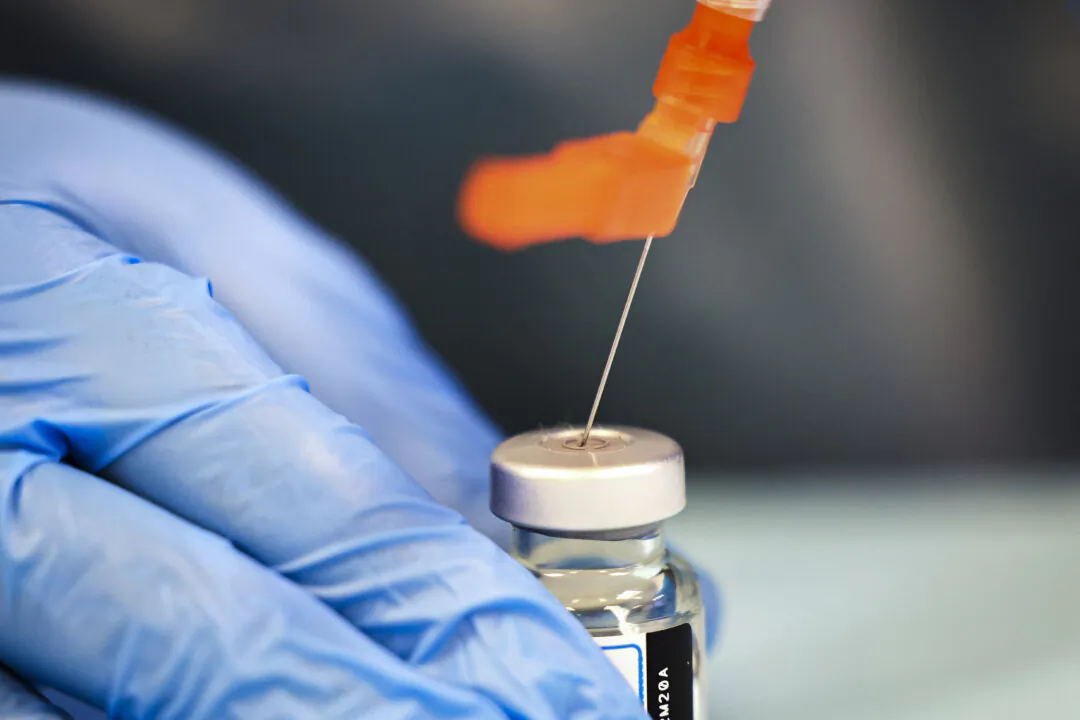The Centers for Disease Control and Prevention has updated its recommendations for COVID-19 vaccines, several days after receiving a directive from Health Secretary Robert F. Kennedy Jr.
The CDC’s vaccination schedule for children previously recommended at least one dose of a COVID-19 vaccine for children aged 6 months and up, regardless of prior vaccination. It now directs people to a set of notes that recommend children aged 6 months to 17 years who do not have moderately or severely compromised immune systems should consult with their parents and doctors when deciding whether to receive a COVID-19 vaccine.
“Where the parent presents with a desire for their child to be vaccinated, children 6 months and older may receive COVID-19 vaccination, informed by the clinical judgment of a healthcare provider and personal preference and circumstances,” the notes say.
Children who are moderately or severely immunocompromised are advised to receive at least one series of a vaccine. That includes four doses of the Pfizer-BioNTech or Moderna vaccine, or three doses of the Novavax vaccine, for children who have never received a COVID-19 shot, according to the CDC.
Children who are immunocompromised and have previously been vaccinated are instructed to take at least one additional dose.
People aged 18 and older are advised, even if they are healthy, to receive at least one dose of a COVID-19 vaccine, with the exception of pregnant women, according to the CDC’s vaccination schedule for adults.
Kennedy said in a video statement on May 27 that the COVID-19 vaccines “as of today” had been removed from the CDC’s immunization recommendations.
“The old COVID-19 vaccine recommendations for healthy children under 18 and for pregnant women have been removed from the CDC vaccine schedule,” a spokesperson for the Department of Health and Human Services (HHS) told The Epoch Times in an email on May 30.
“The CDC and HHS encourage individuals to talk with their healthcare provider about any personal medical decision. Under the leadership of Secretary Kennedy, HHS is restoring the doctor-patient relationship. If a parent desires their healthy child to be vaccinated, their decision should be based on informed consent through the clinical judgement of their healthcare provider,” the spokesperson added.
Asked why there was a delay between Kennedy’s announcement and the recommendations being updated, a CDC spokesperson told The Epoch Times via email that it may stem from the recommendations being in various places across the CDC website, “and all of those places have to be updated.”
The spokesperson said the delay was “definitely not an indication of resistance.”
Some other CDC web pages still contain outdated information. One page says that “everyone ages 6 months and older should get a 2024–2025 COVID-19 vaccine.”
The COVID-19 vaccines had been added to the childhood schedule in 2023. The agency was acting on advice from its vaccine advisory panel, which recently said it favored narrowing the recommendations for children.
It remains unclear if CDC officials were involved in the decision to alter the recommendations. The CDC has not responded to queries about any involvement, and HHS has declined to answer that question.
Some doctors and groups have expressed support for the change to the recommendations.
“I’m encouraged by this 1st step—removing COVID shots from the CDC recommended immunization schedule for healthy children and pregnant women,” Dr. Kris Held, a former president of the Association of American Physicians and Surgeons, wrote on the social media platform X. “I’m praying for step 2—removing it from all recommended immunization schedules.”
Others have criticized the move.
“We’re concerned about the recent HHS announcement to unilaterally change COVID-19 vaccine recommendations for healthy children and pregnant women without a clear rationale or justification for ignoring extensive scientific evidence and existing guidelines,” Dr. Michael Ybarra, chief medical officer at the trade group PhRMA, wrote on LinkedIn.
He and others have said the change may result in insurers declining to cover COVID-19 vaccines.
An estimated 13 percent of children and 14 percent of pregnant women have received a dose of one of the COVID-19 vaccines since the fall of 2024, according to the CDC.



